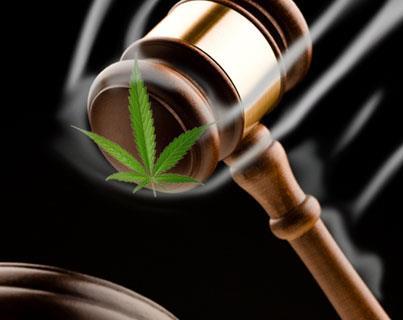Is Marijuana Legal in California?
California’s Mysterious Cannabis Laws
Is marijuana legal in California? No one seems to know. California’s marijuana laws are a virtual labyrinth of contradictory statutes and conflicting jurisprudence. Take simple possession, for example. Getting caught with an ounce or less of marijuana qualifies as an infraction, similar to a traffic ticket. But the traffic ticket parallel raises an important point—traffic tickets often appear on background checks. Consequently, these types of convictions may cause problems with respect to employment or housing.
The current legal status of possession stems from Governor Schwarzenegger’s attempt to defeat Proposition 19, California’s failed legalization measure. The Governor argued that “decriminalizing” small amounts of marijuana rendered Proposition 19 moot. Of course, he glossed over the fact these infractions carry $100 fines. That figure may not sound unreasonable, but offenders must pay additional court costs, which brings the total to over $400. The Governor got his way in the end, so possession of even small amounts cannot be considered legal for the general population in California.

Is Medical Marijuana Legal in California?
California law grants immunities to individuals who grow or use marijuana for medicinal purposes; immunities are essentially exemptions from prosecution. In other words, medical marijuana amends existing statutes for a protected class of patients and their primary caregivers. Nevertheless, judicial discretion prevents any kind of standardization in court proceedings. Activist judges on both sides of the political spectrum hand down ad hoc interpretations guided by ideology. Liberal judges take pleasure in acquitting defendants,and forcing law enforcement officials to return any confiscated medication. Conservative judges relish throwing the book at cancer patients.

This instability extends to the highest levels of the California court system, including the Courts of Appeal. Since the courts can’t get on the same page, many pressing issues remain in legal limbo. A major point of contention lies in the extent to which municipalities may regulate the presence of dispensaries. Rural areas in particular assert their right to completely ban over the counter cannabis sales within city or county limits. Patient residents claim such bans merely eliminate safe access to the medication they need. The Politicians provide little clarity for their part. Governor Jerry Brown supports local control over regulatory issues while Los Angeles City Councilman Eric Garcetti begs for leadership from state officials.
In the end, California’s chaotic legal situation is largely irrelevant. Federal law classifies marijuana as a schedule 1 substance on par with heroin. In Gonzales v Raich, the SCOTUS upheld the Federal government’s authority to regulate medical use of cannabis under the Commerce Clause (Article 1, Section 8). The case involved a California woman who grew a few marijuana plants strictly for personal, medicinal use. She challenged Federal laws on the grounds that they encroached on the states’ power to regulate intrastate commerce. The Justices denied her claim, which means marijuana is not legal in California for patients or recreational users.
Related articles
About Katherine Tattersfield
Humboldt Relief Photographer/Webmaster since 7/2010. Katherine is a professional copywriter responsible for all of the content, including photography, graphics, and text, on the HR website unless otherwise specified. She also handles HR's social communities. She earned her B.A. in Political Science from California State University, Northridge, and works at PrintFirm.com when she's not volunteering for HR. Connect with her on:
Related posts
-
Marijuana Is Still Illegal By Federal Law, ...
January 11, 2015
-
Northern California tribe plans marijuana farm
January 10, 2015
-
Concentrated cannabis qualifies as medical marijuana, California ...
December 26, 2014
-
Residents Riled Over Christmas Display of Pot-Smoking ...
December 23, 2014















